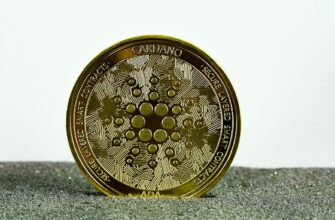Understanding Binance’s Legal Status in Nigeria
Binance, the world’s largest cryptocurrency exchange by trading volume, operates in a complex regulatory landscape in Nigeria. As of 2024, Binance is legally accessible to Nigerian users, but with important caveats. The Central Bank of Nigeria (CBN) lifted its February 2021 ban on cryptocurrency transactions through commercial banks in December 2023, adopting a regulated approach instead. While Binance isn’t officially licensed by Nigerian authorities, individuals can legally trade on the platform using peer-to-peer (P2P) features and compliant payment methods.
Nigeria’s Evolving Crypto Regulatory Framework
Nigeria’s approach to cryptocurrency regulation involves multiple governing bodies:
- Central Bank of Nigeria (CBN): Oversees banking relationships with crypto platforms and sets monetary policies.
- Securities and Exchange Commission (SEC): Classifies cryptocurrencies as securities and requires formal registration for exchanges.
- National Information Technology Development Agency (NITDA): Focuses on blockchain technology standards.
Key regulatory milestones include the SEC’s 2022 “Rules on Issuance, Offering, and Custody of Digital Assets” and the CBN’s May 2023 guidelines permitting banks to service crypto exchanges under strict Anti-Money Laundering (AML) protocols.
How to Use Binance Safely in Nigeria
Follow these steps for compliant Binance usage:
- Complete full KYC verification on Binance using your BVN and valid ID
- Use only P2P trading for Naira transactions to avoid banking restrictions
- Enable two-factor authentication and anti-phishing codes
- Track transactions for potential tax reporting (capital gains tax applies)
- Withdraw funds through CBN-approved channels like Flutterwave or Moniepoint
Note: Avoid direct bank transfers to Binance, as most Nigerian banks still block such transactions despite the regulatory shift.
Nigerian Crypto Exchange Alternatives
While Binance dominates, consider these locally compliant platforms:
- Luno: Fully registered with Nigeria’s SEC
- Quidax: Licensed by Lithuania but popular for Naira pairs
- Yellow Card: Specializes in P2P across Africa
- Patricia: Local exchange with Naira stablecoin options
Frequently Asked Questions (FAQ)
Q1: Is Binance officially licensed in Nigeria?
A: No. Binance operates without direct SEC licensing but complies with CBN’s 2023 guidelines for international exchanges.
Q2: Can I deposit Naira directly to Binance?
A: Not through banks. Use P2P trading or third-party payment processors like Flutterwave for Naira transactions.
Q3: Are Binance transactions taxable in Nigeria?
A: Yes. The Finance Act 2023 classifies crypto profits as taxable capital gains. Maintain transaction records.
Q4: What risks do Nigerian Binance users face?
A: Potential account freezes during regulatory investigations and limited banking support. Always use regulated off-ramps.
Q5: How does Nigeria’s crypto regulation compare globally?
A: Nigeria adopts a middle-ground approach – more open than China’s ban but stricter than El Salvador’s Bitcoin adoption. Regulatory clarity continues to evolve.
Final Considerations
Binance remains legally accessible in Nigeria through P2P channels, though regulatory uncertainty persists. The SEC’s draft rules suggest mandatory licensing for exchanges by 2025. Nigerian users should monitor official CBN and SEC communications, prioritize platforms with local compliance, and maintain meticulous transaction records. Cryptocurrency investments carry inherent risks – only allocate funds you can afford to lose.








